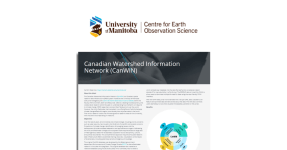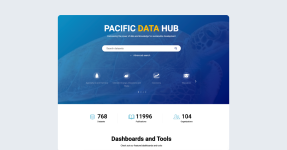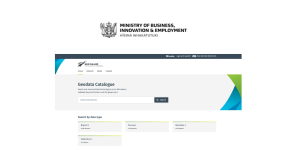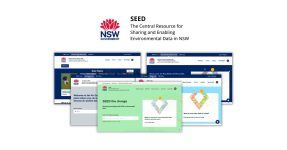The NSW Government is committed to using data to drive better outcomes for the people and businesses of the state. The Data Strategy sets out a collaborative, coordinated and safe approach to using and sharing data across government. This will ensure that decisions are informed by the best possible insights, leading to improved outcomes for all.
This Data Strategy forms Phase 2 of the NSW Data Reform and the statutory review of the Data Sharing (Government Sector) Act 2015 forms Phase:
- Phase 1: embed data practices to deliver data-driven insights during COVID-19 pandemic
- Phase 2: develop and launch a new data strategy
- Phase 3: review the NSW Data Sharing Act 2015
Data is essential for effective decision-making, especially in times of crisis. The COVID pandemic, bushfires, and floods have shown how important data sharing and collaboration are for solving problems. Data governance and security are also crucial for protecting data and maximising its value.
The NSW Data Strategy outlines how to best use data to respond to these challenges. By improving data sharing and collaboration among departments and agencies, we can make better decisions that protect people and property. The strategy also provides guidance on appropriate data governance and security measures to ensure that data is used effectively and protected from misuse.
The Vision
The NSW Government is committed to using data to improve outcomes for the community. Collaborating on data use and sharing will ensure that data is used consistently and safely to inform decision-making. This will aim to accelerate actionable insights, treat data as an asset, strengthen transparency and trust, and foster culture, leadership, and capability.
Accelerating actionable insights
The government needs to be able to make decisions quickly and efficiently, especially in emergency situations. To do this, they need access to actionable insights that can help inform their services, policies, and programs. We can help by establishing ways of working that accelerate our ability to safely bring together data from trusted sources, generate richer insights more quickly, and make them available to decision-makers through self-service and user-friendly data products.
The Spot app is the perfect example of how to go from data to actionable insight. With just one click, the app sends automated ESA news alerts to relevant departments, stakeholders and journalists, allowing the community to be informed of warnings in near real-time. This purposeful research experience results in relevant data and information that leads to more actionable insights.
Treating data as an asset
Data is a critical asset for any organisation, and it is essential that we understand its value, protect it effectively, and invest in it strategically. The data strategy aims to help the NSW government recognise data as a valuable state asset, align on standards and practices to improve usability and value, develop de-identified enduring data assets that bring together data from across the government, and create a spend category for government procurement of data and data services. By taking these steps, it will ensure that data is used more effectively to solve problems and improve decision-making.
As data portals continue to evolve, it is becoming increasingly important to ensure higher levels of interoperability between them. This not only provides more value to end users but also strengthens the ecosystem as a whole.
The NSW Government has already taken steps to ensure this by mapping the latest ANZLIC endorsed version of ISO19115 for CKAN-based data portals and providing a complimentary validator. This allows our clients to register and validate geospatial datasets on three of the NSW Government portals we support.
Strengthening transparency and trust
Data governance is a complex and ever-evolving issue. The strategy outlines the need for data to be collected, managed, used, and shared in accordance with the highest privacy, security, and ethical standards, it must be transparent and trustworthy. This means taking a ‘by design’ approach to data projects, assessing privacy, security, and ethical impacts at every stage, and aligning with community expectations. It also means consolidating the whole government data policies to enable the safe use and sharing of data across all levels of government, including engaging with the Aboriginal Community to implement Indigenous Data Sovereignty and Indigenous Data Governance principles.
Fostering culture, leadership, and capability
The NSW Strategy recognises that people need to be able to use data effectively and safely in order to make decisions that impact the community. To this end, they will foster strong data leadership through the Chief Data Officers (CDOs) and the NSW Data Leadership Group (NDLG). This will include CDOs leading the development of Data Roadmaps for their departments and the NDLG conducting a maturity assessment across the sector to determine baseline data literacy and capability. With this information, areas can be prioritized for improvement in order to build a more capable sector.
The Project Link Digital worked on for the Department of Planning, Industry and Environment (DPIE) is a prime example of fostering culture, leadership and capability by developing policies and clear lines for leadership and accountability for water data.
The NSW Chief Scientist and Engineer was asked to review and advise on the adequacy of water-related data collections, infrastructure, and capabilities to meet current and future requirements and manage associated risks.



